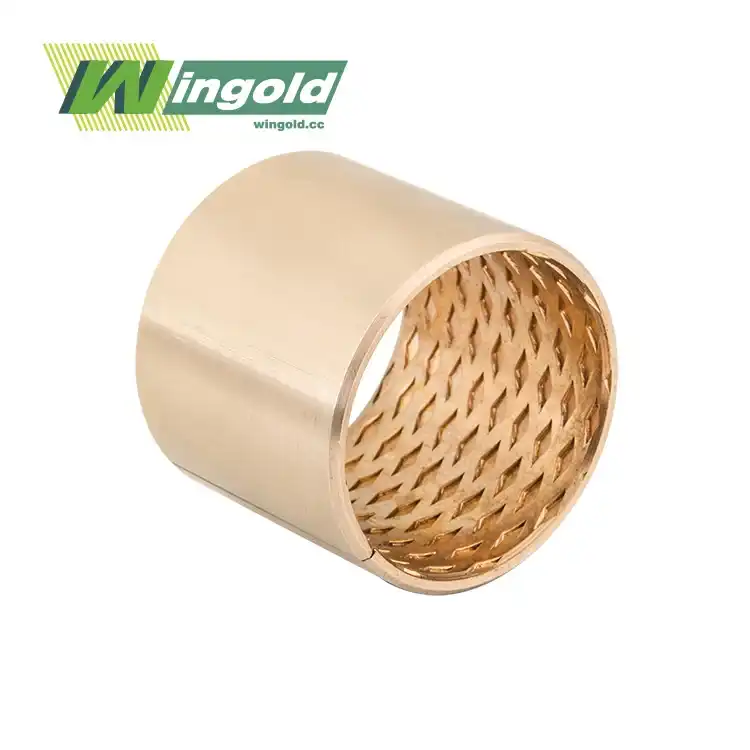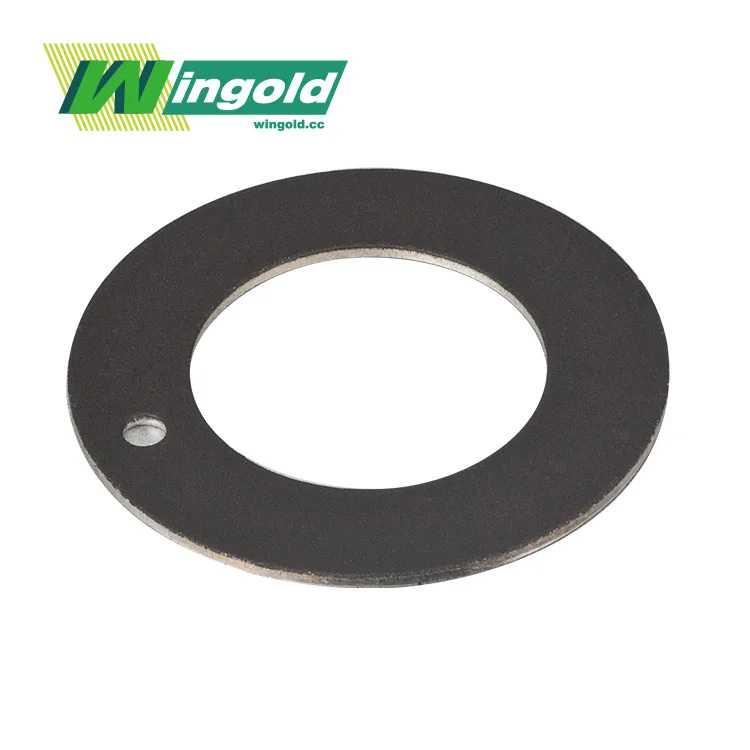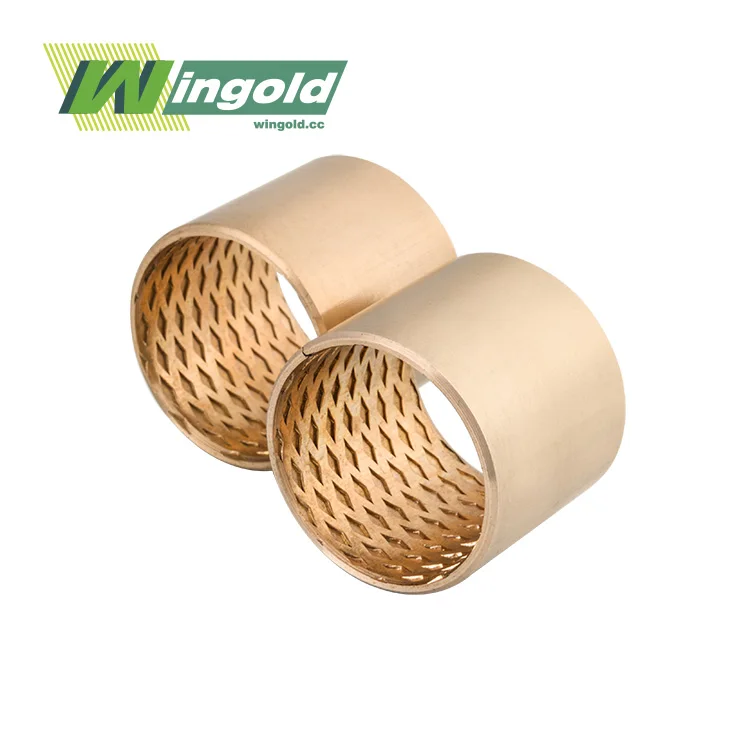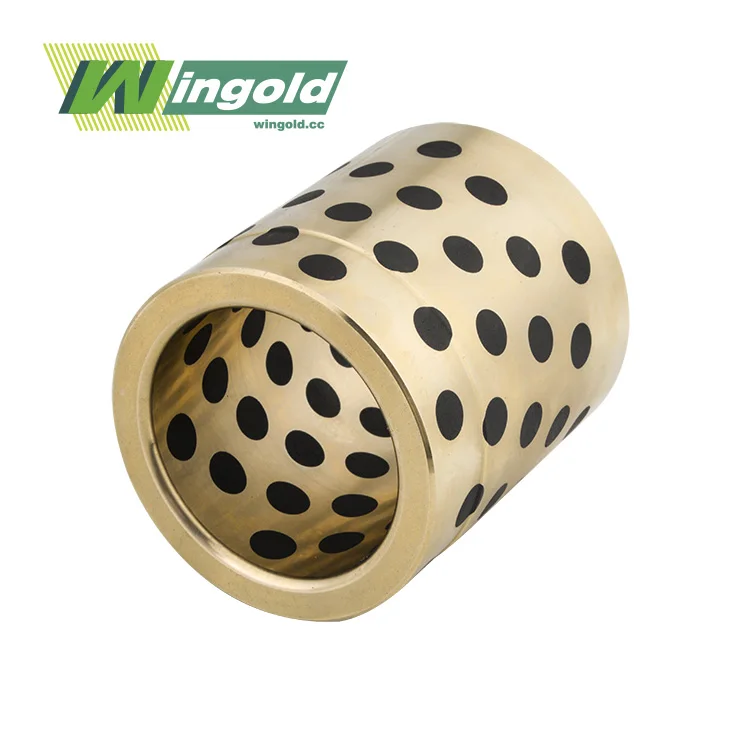Understanding Polymer Bearings Plain in Marine Environments
Composition and Structure of Polymer Bearings Plain
Polymer bearings plain are engineered with a unique composition that makes them particularly suited for marine applications. These bearings typically consist of high-performance polymers, such as modified polyformaldehyde (POM), reinforced with fibers for enhanced strength and durability. The structure often includes a steel back with sintered porous bronze powder, creating a robust foundation for the polymer layer. This composition allows for excellent load-bearing capacity, with some polymer bearings capable of handling up to 140 MPa of pressure.
The self-lubricating properties of polymer bearings plain are a result of their carefully designed structure. Many designs incorporate oil indentations within the polymer matrix, which release lubricant as needed during operation. This feature is crucial in marine environments where regular maintenance and lubrication can be challenging and costly.
Unique Properties for Marine Use
Polymer bearings plain possess several unique properties that make them ideal for marine applications:
Corrosion Resistance: Unlike traditional metal bearings, polymer bearings are immune to rust and corrosion, even when exposed to saltwater and harsh marine chemicals.
Low Friction: With friction coefficients ranging from 0.03 to 0.25, these bearings significantly reduce wear and energy consumption in marine equipment.
Wide Temperature Range: Capable of operating between -40°C to +150°C, polymer bearings can withstand the varied temperature conditions encountered in marine environments.
Chemical Resistance: These bearings exhibit excellent resistance to a wide range of chemicals, ensuring longevity in diverse marine settings.
Noise Reduction: The dampening properties of polymers result in quieter operation, crucial for noise-sensitive marine applications.
Key Advantages of Polymer Bearings Plain in Marine Applications
Enhanced Durability and Longevity
In the challenging marine environment, durability is paramount. Polymer bearings plain excel in this aspect, offering exceptional resistance to wear, corrosion, and chemical degradation. Their self-lubricating nature eliminates the need for constant maintenance, significantly extending the service life of marine equipment. This enhanced longevity translates to reduced replacement frequency and lower overall operational costs for marine industries.
The ability of polymer bearings to withstand high loads and operate efficiently under medium load conditions at normal temperatures makes them ideal for various marine applications. From ship rudder systems to offshore wind turbine components, these bearings consistently deliver reliable performance, even in the most demanding conditions.
Reduced Maintenance and Operational Costs
One of the most significant advantages of using polymer bearings plain in marine applications is the substantial reduction in maintenance requirements. Traditional bearings often necessitate frequent lubrication and maintenance checks, which can be particularly challenging and costly in offshore environments. Polymer bearings, with their self-lubricating properties, eliminate this need, leading to:
Decreased downtime for maintenance
Reduced labor costs associated with bearing upkeep
Lower expenses for lubricants and related maintenance materials
Simplified replacement procedures when necessary
Moreover, the lightweight nature of polymer bearings contributes to overall system efficiency. This weight reduction can lead to fuel savings in marine vessels and improved energy efficiency in various marine applications, further reducing operational costs.
Environmental Benefits and Compliance
The use of polymer bearings plain in marine applications aligns well with increasing environmental regulations and sustainability goals in the maritime industry. These bearings offer several environmental benefits:
Elimination of Lubricant Leakage: Traditional bearings can leak lubricants into marine environments, posing risks to aquatic ecosystems. Polymer bearings, being self-lubricating, eliminate this risk entirely.
Reduced Carbon Footprint: The lightweight nature and low friction properties of polymer bearings contribute to reduced energy consumption, thereby lowering the carbon footprint of marine operations.
Extended Lifespan: By lasting longer and requiring fewer replacements, polymer bearings reduce waste and the environmental impact associated with manufacturing and disposing of bearings.
Compliance with Regulations: As environmental regulations become stricter, particularly in sensitive marine areas, the use of polymer bearings helps marine operations comply with these standards more easily.
Applications and Future Trends of Polymer Bearings Plain in Marine Industry
Current Applications in Marine Sector
Polymer bearings plain have found widespread use across various marine applications, demonstrating their versatility and effectiveness in this challenging environment. Some key applications include:
Ship Propulsion Systems: Used in propeller shafts and rudder bearings, providing smooth operation and reduced maintenance.
Offshore Platforms: Employed in various moving parts of offshore rigs, offering reliability in harsh conditions.
Marine Winches and Hoists: Providing efficient and low-maintenance operation for cargo handling equipment.
Underwater Robotics: Utilized in joints and moving parts of ROVs (Remotely Operated Vehicles) and AUVs (Autonomous Underwater Vehicles).
Dock and Port Equipment: Used in cranes, conveyors, and other loading/unloading machinery, enhancing durability and reducing downtime.
Emerging Trends and Future Prospects
The marine industry is constantly evolving, and polymer bearings plain are at the forefront of several emerging trends:
Integration with Smart Technologies: Future polymer bearings may incorporate sensors for real-time monitoring of wear and performance, enabling predictive maintenance.
Advanced Material Development: Ongoing research is focused on developing even more durable and efficient polymer compounds, potentially expanding the application range of these bearings.
Customization for Specific Marine Applications: As the demand grows, manufacturers like Wingold are offering more customized solutions, tailoring polymer bearings to specific marine applications and requirements.
Increased Use in Renewable Marine Energy: With the growth of offshore wind farms and tidal energy projects, polymer bearings are expected to play a crucial role in these sustainable energy initiatives.
As marine operations continue to prioritize efficiency, sustainability, and reliability, the role of polymer bearings plain is set to expand further. Their unique properties make them ideal for addressing the evolving challenges of the marine industry, from harsh environmental conditions to stringent regulatory requirements.
Conclusion
Polymer bearings plain have emerged as a game-changing technology in marine applications, offering a perfect blend of durability, efficiency, and environmental friendliness. Their ability to withstand harsh marine conditions while providing superior performance makes them an invaluable asset in various marine operations. As the industry continues to evolve, the adoption of polymer bearings is likely to increase, driving innovation and sustainability in marine engineering.
For those looking to enhance their marine operations with high-quality polymer bearings plain, Wingold offers customized solutions tailored to specific needs and applications. With our expertise in self-lubricating bearings and commitment to innovation, we are well-positioned to support the growing demands of the marine industry. For more information or to discuss your specific requirements, please contact us at info@wingold.cc
.
FAQ
What makes polymer bearings plain suitable for marine applications?
Polymer bearings plain are ideal for marine use due to their corrosion resistance, self-lubricating properties, and ability to withstand harsh saltwater environments.
How do polymer bearings compare to traditional metal bearings in marine settings?
Polymer bearings offer superior corrosion resistance, require less maintenance, and provide longer service life compared to traditional metal bearings in marine applications.
Can polymer bearings plain handle the high loads encountered in marine operations?
Yes, high-quality polymer bearings can handle loads up to 140 MPa, making them suitable for various demanding marine applications.
Are polymer bearings environmentally friendly?
Yes, polymer bearings are environmentally friendly as they eliminate the need for external lubrication, reducing the risk of lubricant leakage into marine ecosystems.




